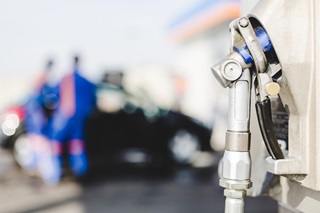Calor has become aware of increasing numbers of people using adaptors to fill LPG cylinders from autogas dispensers. This practice is not only unlawful but also highly dangerous as there is a strong probability of leaks occurring and cylinders being overfilled.
The filling of LPG cylinders is potentially an extremely hazardous activity, and safe filling requires appropriate expertise and training of operators, use of certified equipment, safe working procedures and a safe environment. Automotive LPG filling stations incorporate safety measures to ensure the safe refuelling of vehicles but they do not include all of the necessary safety elements required for filling LPG cylinders. Furthermore, commercial LPG is supplied in two forms – propane and butane – and filling a cylinder with the wrong type of LPG can lead to serious appliance malfunction and can cause safety devices to fail.
Members of the public who refill LPG cylinders using autogas refuelling equipment not only create a serious risk to their own safety and the safety of others, but are also contravening UK Health and Safety Regulations, Weights and Measures Regulations and Consumer Safety legislation. These Regulations impose important legal duties on the site operator to ensure the safety of both their employees and members of the public. In the event of an accident as a result of this type of activity, the site operator could be liable to prosecution. Calor is therefore urging autogas refuelling site operators to be vigilant and take appropriate action to prevent the unlawful and potentially dangerous re-filling cylinders in this manner.
Dr Terry Ritter, Calor’s Head of Health and Safety said “The public might think it is an easy and convenient way to top up a cylinder, but they are actually putting themselves and others at risk of serious injury or even death. Calor has taken successful court action against individuals for unauthorised filling and will continue to do so.”

 }
}
 }
}
 }
}
 }
}
 }
}
 }
}
 }
}
 }
}